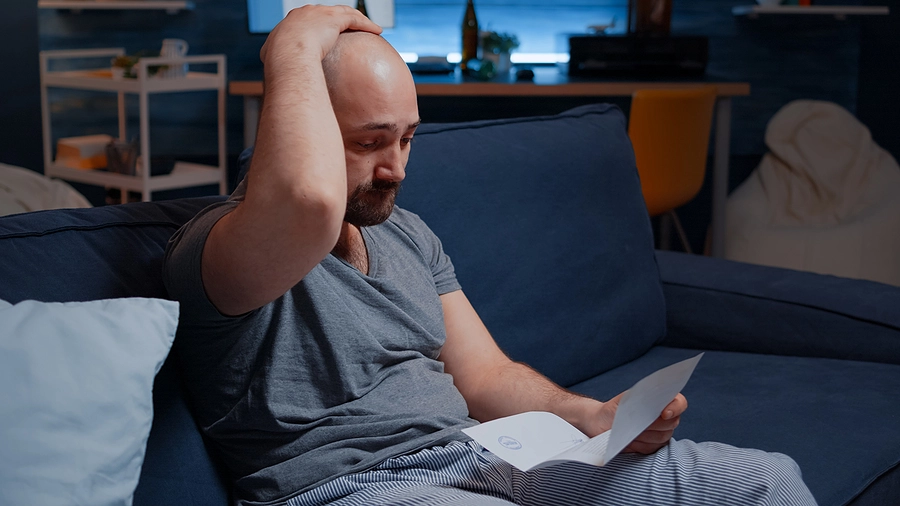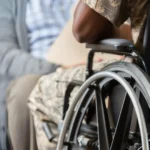Rely on an experienced veterans disability appeals lawyer to help you navigate the steps after a VA denial for the best outcome.
Summary
- If you get a VA denial of disability benefits letter, contact a VA-accredited attorney to explore your appeal options and receive guidance throughout the steps of the appeals process.
- Review the VA’s denial reasons and consult with your VA disability attorney to identify misunderstandings or errors. This helps to shape a more informed appeal strategy.
- Define specific goals for your appeal, such as restoring your disability rating, obtaining Special Monthly Compensation, or connecting a secondary condition to a service-related disability.
- Collect necessary evidence to strengthen your appeal, such as medical records, service documents, and statements from fellow service members.
- Decide on the appropriate appeal path—Supplemental Claim, Higher-Level Review, or Board of Veterans’ Appeals—based on the nature of your denial and the advice of your veterans disability claims lawyer.
Receiving a decision letter from the VA that denies your claim for disability benefits can be frustrating and invalidating. Unfortunately, this is a part of the process of securing VA disability benefits for the majority of veterans. Instead of forfeiting your right to appeal the VA’s decision, take action to demand the disability benefits you are rightfully owed.
You can count on the VA-accredited veterans disability benefits denial attorneys of VetLaw to deliver for you. To schedule a free consultation with our team, call (855) 573-1503 or submit a contact form. Not only will we explain the right steps to take after a VA claim denial, but we will also represent you at every stage of the process.
Get in Touch With an Accredited VA Disability Appeals Lawyer
Don’t settle for generic advice from an unaccredited VA coach who overcharges you for their “assistance”. Instead, opt for a reputable veterans disability appeals attorney with the track record to back up the services they advertise.
Your VA disability claims attorney will be able to help you manage the paperwork that comes with filing a claim, interpret VA benefits terminology, and make strategic choices for your appeal. They will also outline realistic expectations for you regarding your VA disability rating, the timeline of the appeals process, and what benefits you qualify for.
Understand Why the VA Denied Your Claim or Appeal for Disability Benefits
Carefully review the VA’s stated reason for denying your disability claim and listen to your attorney’s insight. This information can heavily influence the trajectory of your appeal. For instance, maybe you are a former Army Reservist seeking VA disability benefits, but the VA says your in-service event doesn’t qualify because you weren’t on active duty.
However, you suffered a heart attack while on inactive duty for training, which means that you should be eligible for VA disability benefits as an Army Reserve veteran. Now that you know that the VA misunderstood the provision you were applying for, you can make an informed decision about your next steps after a VA claim denial.
Determine Your Goal for Your Appeal After a VA Claim Denial
When you launch an appeal against the VA, it’s important to know what you hope to accomplish. After all, if you are satisfied with the VA’s decision, you probably aren’t looking to invest considerable time and energy into appealing your claim’s status. Specific, achievable goals help you stay focused and motivated. Discuss your priorities with your VA appeals attorney.
For example, are you trying to restore your VA disability rating after a reduction, secure Special Monthly Compensation, or connect a secondary condition to a service-related disability? Maybe you want to increase your disability rating due to worsening symptoms, establish entitlement for a service-connected physical condition, or something else entirely.
Identify the Evidence You Need to Build an Appeal
If you are pursuing a Higher-Level Review, you do not submit new evidence, so you can skip this step after a VA claim denial. However, for most other types of veterans appeals, you’ll need evidence to fill in the gaps in your VA disability claim. For instance, maybe you need an updated MRI to show the lingering effects of a service-related stroke.
Alternatively, you may need to request your service record to apply for a Discharge Upgrade to be eligible for benefits, find a fellow service member to vouch for your account of how you were injured, or obtain a medical nexus letter from your provider to cement your service connection.
Your VA disability lawyer can offer guidance on which types of evidence are most reliable and compelling.
Decide Which Appeals Path Makes Sense for Your Veterans Disability Claim
Coordinate with your veterans disability claims lawyer to pick the appeal path best suited to your individual claim. Your options are filing a Supplemental Claim, requesting a Higher-Level Review, or asking the Board of Veterans’ Appeals to reexamine your case.
Veterans should consider various factors, like the average success rates and wait times for appeals in recent years. Ideally, you want to choose an appeal path that aligns with why you received a VA claim denial in the first place.
For instance, if you and your attorney determined that the VA reviewer misinterpreted a regulation that led them to deny the claim, you would likely want a Higher-Level Review because those VA adjudicators have more experience and would probably catch the mistake.
Rely on VetLaw to Guide You Through the Steps to Take After a VA Claim Denial of Disability Benefits
Once you have chosen the right appeal path after the VA denies your claim, your veterans disability claims attorney will organize your evidence, research applicable regulations, and represent your case. At Vet Law, our veterans disability appeals lawyers have relentlessly championed clients in the VA appeals process.
You can trust us to do the same for you. To schedule a free consultation with our team here at VetLaw, call (855) 573-1503 or submit a contact form. We are available to you to discuss the specifics of your VA disability claim and offer evidence-based advice.
Frequently Asked Questions
Is there a maximum number of times I can appeal a VA decision about my disability claim?
No, the VA does not officially set a limit on the number of appeals veterans can file for disability claims. However, many veterans find themselves naturally limited by the time and resources an appeal requires. Starting early and taking the time to build a strong appeal can eliminate the need for further appeals.
When can I expect to receive my disability benefits after the VA grants my appeal?
Typically, the VA issues payments within 15 days of a decision to grant disability benefits.
How long can I wait to appeal after a VA claim denial?
Arguably one of the most important steps to take after a VA claim denial is to initiate your appeal. From the date on your VA decision letter, you have 1 year to act if you want to appeal to a Higher-Level Reviewer or BVA judge. There is some flexibility if you are filing a Supplemental Claim, as that requires you to submit evidence, but sooner is still better.







